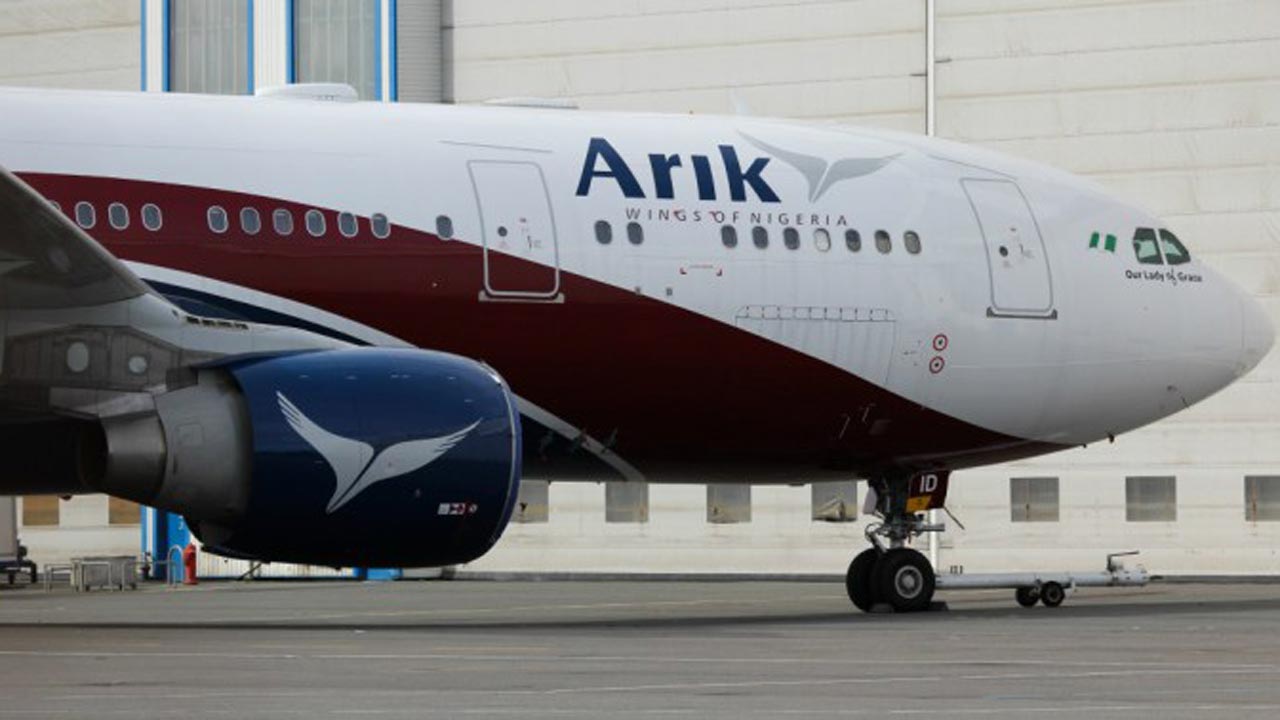- Arik Secures Major Investor to Offset AMCON, Other Creditors’ Debts
The controversy rocking Nigeria’s major carrier, Arik Air, may soon be over as the shareholders are now deeply in discussion with a major investor, who would take over significant shares from the company and provide the funds to offset the debts of the airline owed to Asset Management Corporation of Nigeria (AMCON) and other creditors.
Investigations revealed that the company interested in investing in the airline is a Middle East-based conglomerate, which has its headquarters in Dubai with interest to do business in Africa, as the continent has been projected as new bastion of hope for economic development in the world.
Informed source said that negotiation, which took place in London last Wednesday and Thursday, had advanced to the level that the two companies have made “headline” commitments as discussion continues.
The plank of discussion is on the shareholding and the depth of the debts, which creditors must back with evidence, and also operational conditions.
The Chairman of Arik Air, Sir Joseph Arumemi-Ikhide, confirmed the discussion in a telephone interview.
Arumemi-Ikhide who was on a medical trip to London, said the investor has started negotiation with the shareholders of the company and so far both parties had had fruitful discussions as negotiation continues.
Informed source also disclosed that some top government officials might be privy to the negotiation and that the Middle East-based company is the third organisation that had contacted Arik Air shareholders on partnership, including a company from the United States, which met with the shareholders 10 days ago, but the company in talks now seemed poised to invest in Africa, which is seen as the next huge economic window for investment.
Also, the company, which if encouraged by the Nigerian government would build a maintenance, repair and overhaul (MRO) facility, is also interested in investing in power and agriculture in Nigeria and is in discussion with another company on investing in the power sector.
According to informed sources, the Middle East-based company has been monitoring Arik Air activities in the last two years and has seen it as strong platform to make in-road in air transport in Africa.
“We have been having discussions with investors and 10 days ago we had discussion with a US-based company, but we are having serious discussion now with this organisation, which is based in the Middle East because they have a package to invest in Africa and take advantage of the growing economy in the region. We have reached agreement on what I will call the sub-heads but the details will come out in our next discussion, but so far the discussion has been fruitful.
“They are interested in expanding our operations and will give us additional airplanes in addition to the six we ordered from Boeing; so we have to expand our operations throughout Africa and other international destinations with their partnership. They are eager to invest in Nigeria but, of course, with the support of the Nigerian government and they said that government support is crucial because you cannot really succeed in airline business without government’s support and that is necessary for them to invest in Nigeria or they will take their funds to another African country,” informed source said.
Also, Arik Air shareholders are putting a strong team for the next round of discussion, including Deloitte UK, Barclays Africa and UK-based law firm.
In addition to international creditors, AMCON claims that Arik Air owed it N263.7 billion, but the airline had argued that its total debt exposure, including that of international creditors and local debts amounted to N160 billion, which represents a 16.4 per cent of its value put at $3.2 billion by Deloitte UK in 2013.


 Forex2 weeks ago
Forex2 weeks ago


 Naira1 week ago
Naira1 week ago
 Naira4 weeks ago
Naira4 weeks ago
 Company News4 weeks ago
Company News4 weeks ago
 Billionaire Watch1 week ago
Billionaire Watch1 week ago




 Naira2 weeks ago
Naira2 weeks ago




 Naira1 week ago
Naira1 week ago




 Naira3 weeks ago
Naira3 weeks ago




















